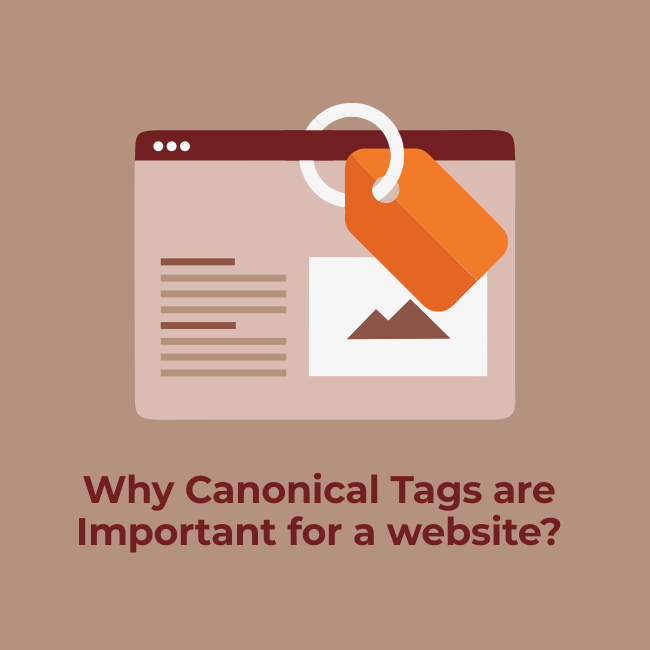Why Canonical Tags are Important for a website?

Canonical tags, often abbreviated as "rel=canonical" in HTML, are an essential component of website development and search engine optimization (SEO). Their primary purpose is to address the issue of duplicate content, a common challenge for websites. Duplicate content can arise when similar or identical content exists on multiple pages within the same website or across different websites. This situation can confuse search engines and potentially harm a site's search rankings. Canonical tags offer a solution by specifying the preferred or canonical URL for a given piece of content.
One of the most significant advantages of canonical tags is their ability to resolve duplicate content issues. When search engines encounter duplicate content, they must decide which version to display in search results. Without clear guidance, this can lead to reduced rankings or even penalties. Canonical tags provide that guidance by indicating which URL should be considered the primary source of the content. This ensures that search engines correctly index and rank the content, enhancing the website's SEO performance.
Moreover, canonical tags help preserve the SEO value of a website. When multiple pages with similar content exist, search engines may perceive them as competing for the same keywords and relevance. This dilutes the SEO value across these pages. Canonical tags consolidate this value by pointing to a single preferred version, concentrating all SEO efforts and backlinks on that URL. As a result, the chosen URL has a higher chance of ranking well in search results, leading to improved visibility and traffic.
In addition to their SEO benefits, canonical tags enhance the user experience. Users expect to find diverse and relevant search results when looking for information online. Duplicate content can clutter search results, making it harder for users to find what they need. By using canonical tags to guide search engines toward displaying the preferred version of your content, you help streamline search results, ensuring that users receive the best and most relevant information.
In conclusion, canonical tags are a vital tool in managing duplicate content, preserving SEO value, enhancing user experience, and avoiding potential search engine penalties. Properly implementing canonical tags in your website's HTML can significantly contribute to its search engine rankings and overall success in the digital landscape. These tags may appear small, but their impact on your website's performance and visibility is substantial.
One of the most significant advantages of canonical tags is their ability to resolve duplicate content issues. When search engines encounter duplicate content, they must decide which version to display in search results. Without clear guidance, this can lead to reduced rankings or even penalties. Canonical tags provide that guidance by indicating which URL should be considered the primary source of the content. This ensures that search engines correctly index and rank the content, enhancing the website's SEO performance.
Moreover, canonical tags help preserve the SEO value of a website. When multiple pages with similar content exist, search engines may perceive them as competing for the same keywords and relevance. This dilutes the SEO value across these pages. Canonical tags consolidate this value by pointing to a single preferred version, concentrating all SEO efforts and backlinks on that URL. As a result, the chosen URL has a higher chance of ranking well in search results, leading to improved visibility and traffic.
In addition to their SEO benefits, canonical tags enhance the user experience. Users expect to find diverse and relevant search results when looking for information online. Duplicate content can clutter search results, making it harder for users to find what they need. By using canonical tags to guide search engines toward displaying the preferred version of your content, you help streamline search results, ensuring that users receive the best and most relevant information.
In conclusion, canonical tags are a vital tool in managing duplicate content, preserving SEO value, enhancing user experience, and avoiding potential search engine penalties. Properly implementing canonical tags in your website's HTML can significantly contribute to its search engine rankings and overall success in the digital landscape. These tags may appear small, but their impact on your website's performance and visibility is substantial.